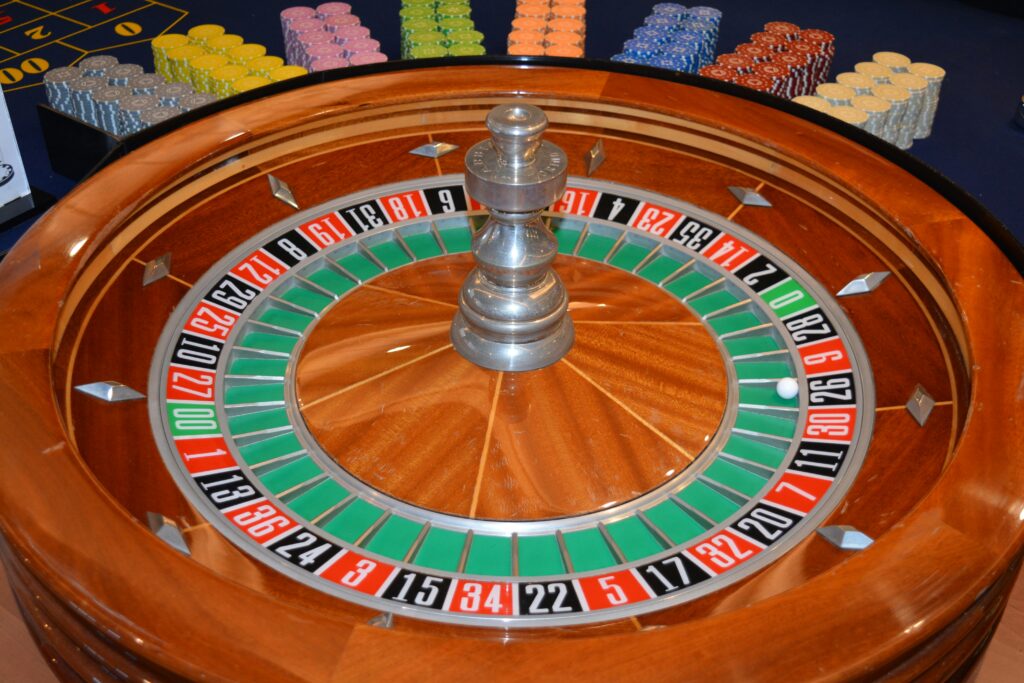Why Early Detection Matters
Recognizing problem gambling in its early stages can be the key to preventing serious emotional, financial, and social consequences. What often begins as casual entertainment can spiral into a harmful pattern before it’s fully noticed.
The Slippery Slope of Casual Gambling
Gambling doesn’t become a problem overnight. For many, it starts as a recreational activity—purchasing the occasional lottery ticket or joining a weekend game with friends.
However, certain habits can develop quietly:
- Increasing the frequency of gambling sessions
- Transitioning from low-stakes games to high-risk betting
- Gradually betting higher amounts without fully realizing it
- Justifying losses or frequent play as “fun” or “normal”
These subtle shifts can quickly lead to more serious consequences if not addressed early.
The Compounding Impact
Problem gambling doesn’t happen in isolation. It affects multiple areas of a person’s life, creating a ripple effect that builds over time.
Mental health:
- Heightened anxiety and depression
- Sleep disturbances or obsessive thinking
Financial stress:
- Accumulated debt from chasing losses
- Depleting savings or relying on loans
Strained relationships:
- Erosion of trust among family and friends
- Increased conflict or avoidance behaviors
Why Early Recognition Matters
Spotting the early signs of problem gambling offers a crucial opportunity:
- Intervening before the harm deepens, both psychologically and financially
- Opening the door to help and recovery while the person may still feel in control
- Avoiding crisis-level outcomes, like significant debt or relationship breakdowns
By prioritizing awareness and talking openly about gambling behaviors, individuals and their loved ones can take proactive steps toward healthier habits and support systems.
Common Behavioral Signs
Problem gambling often starts with a shift—not always dramatic, but noticeable if you’re paying attention. One of the first signs is spending more time and money gambling than intended. What began as an occasional bet turns into regular nights glued to a screen or frequent trips to the casino. Budgets get forgotten. Time stretches. Other priorities slip.
Another red flag? Chasing losses. When someone starts betting more—not out of excitement, but desperation to win back what they’ve lost—that’s a serious warning. This usually leads to higher-risk bets, irrational decisions, and a quick spiral deeper into financial trouble.
Then there’s secrecy. People hiding receipts, minimizing losses, or straight-up lying about how much they’ve spent. Maybe they say they were “just playing for fun” or “only wagered twenty bucks.” But the truth often lives in the hidden bank statements and deleted histories.
These three behaviors often go hand in hand. And while any one of them might seem small on its own, together they paint a clear picture: this isn’t just about fun anymore. It might be time to pause and take a closer look.
Emotional and Psychological Red Flags
If someone’s emotional state rises and falls with the outcome of a bet, that’s more than just enthusiasm—it’s volatility that can mask a deeper issue. Mood swings tied to wins and losses are common signs of gambling dependence. A big win may lift spirits unnaturally high, while a losing streak can trigger irritability, sadness, or even anger.
When gambling becomes a routine escape, it often comes with restlessness or anxiety during the in-between moments—those times when the person isn’t placing bets or checking odds. They may feel unsettled or on edge, like real life can’t compete with the dopamine rush of a wager.
It doesn’t stop there. Some turn to gambling as a way to cope with life’s problems—stress at work, loneliness, or persistent anxiety. In these cases, the game stops being about money or entertainment. It becomes a numbing tool, a mental off-switch. Over time, this kind of emotional outsourcing only deepens the problem and makes recovery harder.
Spotting these red flags early helps. The sooner someone recognizes the pattern, the better chance they have to regain control before things spiral.
Financial Warning Signals
Problem gambling often shows up most clearly in a person’s finances. These red flags can develop gradually, but their impact can be serious and far-reaching if not addressed early.
Mounting Debts and Borrowing
One of the earliest signs of gambling-related financial trouble is unexplained debt:
- Frequent borrowing from friends, family, or payday lenders
- Credit card balances that increase without a clear reason
- Taking out loans with no solid repayment plan
These behaviors may be hidden at first, but over time, they become harder to manage and conceal.
Selling Personal Belongings or Skipping Bills
To fuel ongoing gambling, individuals may take desperate steps:
- Selling electronics, jewelry, or other valuables for quick cash
- Falling behind on rent, utilities, or loan payments
- Sacrificing essential expenses such as groceries or medical care
This pattern often signals the gambling has moved beyond a casual activity and into harmful territory.
Rationalizing Gambling Losses
Another common warning sign is distorted thinking around money and gambling gains:
- Justifying more gambling as a way to “win back losses”
- Viewing gambling not as a cost, but as a potential income source
- Refusing to acknowledge losses or blaming them on bad luck
This mindset creates a dangerous cycle of risk-taking fueled by denial—and can push individuals further into financial crisis.
Recognizing these financial behaviors is a key step toward early intervention. Addressing them honestly and promptly can prevent long-term damage and open the door to recovery.
Social and Lifestyle Changes
When gambling starts to take priority, everything else tends to take a back seat. One of the early signs is social withdrawal. People may stop spending time with friends or skip family gatherings—not because they’re busy, but because they’re focused on gambling or concealing how often they’re doing it. It’s subtle at first, then becomes a pattern.
Work and school can suffer next. Missed deadlines, poor performance, calling in sick more often—all signs that gambling might be creeping in where focus once lived. These aren’t just bad habits; they’re red flags.
Perhaps the biggest shift is when personal responsibilities start getting second billing. Skipping out on chores, neglecting health, ignoring financial obligations—when gambling takes up more time and mental space than the rest of life, that’s a signal something’s off. Problem gambling doesn’t always blow through the door loudly. Sometimes, it quietly starts shutting everything else out.
How to Approach the Topic (For Friends & Family)
Noticing the signs of problem gambling in someone you care about isn’t always glaring. It can start small. Maybe they’re talking more about gambling wins than usual—or glossing over losses. You might notice them getting easily agitated, avoiding conversations about money, or going off the radar for long stretches. These changes stack up: missed commitments, always short on cash, emotionally checked out. If your gut says something’s off, trust it.
Starting the conversation won’t be easy. But it doesn’t have to be dramatic either. Aim for quiet and low-stress—no lectures, no accusations. Use “I” statements: “I’ve noticed you’ve seemed stressed lately” or “I’m worried because it feels like gambling is taking up a lot of your time.” Keep your tone neutral. The moment someone feels like they’re being judged or cornered, they shut down.
Once the door is open, listen. Let them explain without rushing to fix it. Offer support without stacking on shame or pressure to quit cold turkey. You’re not the solution—you’re the support system. Point them gently toward resources if they’re open to it, but don’t force it. The goal here is connection, not confrontation.
Tools and Resources for Help
Recognizing a gambling problem is step one. Knowing where to turn comes next. Fortunately, there’s an expanding network of tools that make getting help more accessible than ever.
Start with digital screening tools and self-assessments—they’re simple, fast, and private. These tools ask a few key questions to help you gauge the severity of your gambling and whether it may be affecting your life more than you think. They’re not a diagnosis, but they’re a strong starting point.
Free helplines and professional services are another cornerstone. Trained counselors are available 24/7 in many regions to talk anonymously. They’re calm, clear-headed, and know the cycle—because they’ve helped others break it. If the problem runs deeper, they can also help connect you to licensed therapists or outpatient programs that specialize in gambling addiction.
Support groups, both online and in-person, offer something different: shared experience. Whether it’s Gamblers Anonymous or a local peer-led circle, these spaces create a judgment-free environment where people can talk honestly and get perspective. Therapy paired with these groups can deliver real momentum.
For those looking for additional structure, alternative approaches like self-exclusion—which blocks access to online casinos and betting apps—can offer breathing room to reset habits.
Related read: The Benefits of Self-Exclusion Programs in Online Casinos
Taking Action: What to Do If You Spot the Signs
When someone shows signs of problem gambling, action needs to follow quickly—before habits harden into crisis. That starts with boundaries. Set limits on time, money, and location. Removing gambling apps, avoiding betting environments, or switching up daily routines helps disrupt triggers. Some people even replace downtime with safer activities—sports, online communities, or games that don’t involve money.
Next: create financial firewalls. Limiting access to cash might mean handing over control of debit cards, setting spending restrictions at the bank, or using prepaid cards with capped balances. It’s not about punishment—it’s about building distance between impulse and access.
And then there’s self-exclusion. Most online platforms and physical casinos offer programs to block access. Pair these with responsible gambling tools like spending trackers and time limits. These systems aren’t perfect, but they can slow down risky behavior and give people space to regain control.
None of these steps are one-size-fits-all. But they work best when people stay honest, use the tools available, and understand that pulling back isn’t failure—it’s taking charge.
Final Thoughts
Problem gambling often hides behind silence and shame. But needing help isn’t a sign of weakness—it’s a sign you’re paying attention. That awareness is the first real turning point. The earlier someone spots the shift from casual play to something riskier, the better the chances of getting ahead of the damage.
You don’t need to hit rock bottom before things turn around. Whether you’re noticing the signs in yourself or someone close to you, action taken early almost always leads to better outcomes. There are tools, support systems, and recovery plans that aren’t just available—they’re effective. But the first step has to come from you. Awareness. Then action. You don’t have to do it alone.



